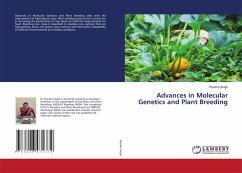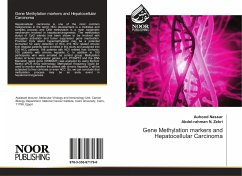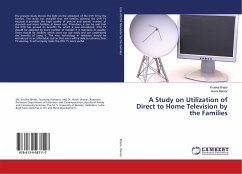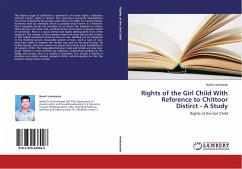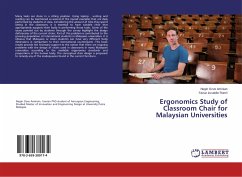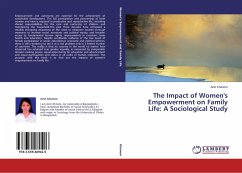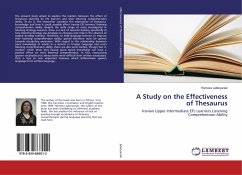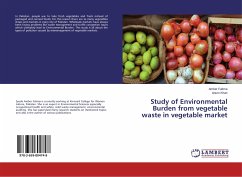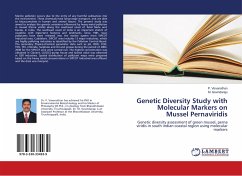
Genetic Diversity Study with Molecular Markers on Mussel Pernaviridis
Genetic diversity assessment of green mussel, perna viridis in south indian coastal region using molecular markers
Versandkostenfrei!
Versandfertig in 6-10 Tagen
36,99 €
inkl. MwSt.

PAYBACK Punkte
18 °P sammeln!
Marine pollution occurs due to the entry of any harmful substances into the environment. These chemicals have long-range transport, and are able to bioaccumulate in human and animal tissues. The present study was aimed to analyze the genetic variations influenced by heavy metal pollution in mussel (Perna viridis) along the southeast coast of Tamil Nadu and Kerala, in India. The southeast coast of India is an important stretch of coastline with important features and landmarks. Since 1981, toxic pollutants have been released into the marine system from SIPCOT Industrial area, Cuddalore. SIPCOT ...
Marine pollution occurs due to the entry of any harmful substances into the environment. These chemicals have long-range transport, and are able to bioaccumulate in human and animal tissues. The present study was aimed to analyze the genetic variations influenced by heavy metal pollution in mussel (Perna viridis) along the southeast coast of Tamil Nadu and Kerala, in India. The southeast coast of India is an important stretch of coastline with important features and landmarks. Since 1981, toxic pollutants have been released into the marine system from SIPCOT Industrial area, Cuddalore. SIPCOT area includes 13 major industries, which are highly polluting industries as identified by the Pollution Control Board. The secondary Physico-chemical parameter data such as pH, BOD, COD, TDS, TSS, Chloride, Sulphate and Oil and grease during the period of 2003-2008 for the SIPCOT area were carried out. The highest concentration was obtained in Clariant, CUSECS-pump house and lowest value wasobserved in GSR Industries. Spatial distribution of pollutant maps were prepared based on the heavy metal concentrations in SIPCOT Industrial area effluent and the data was interpret.



